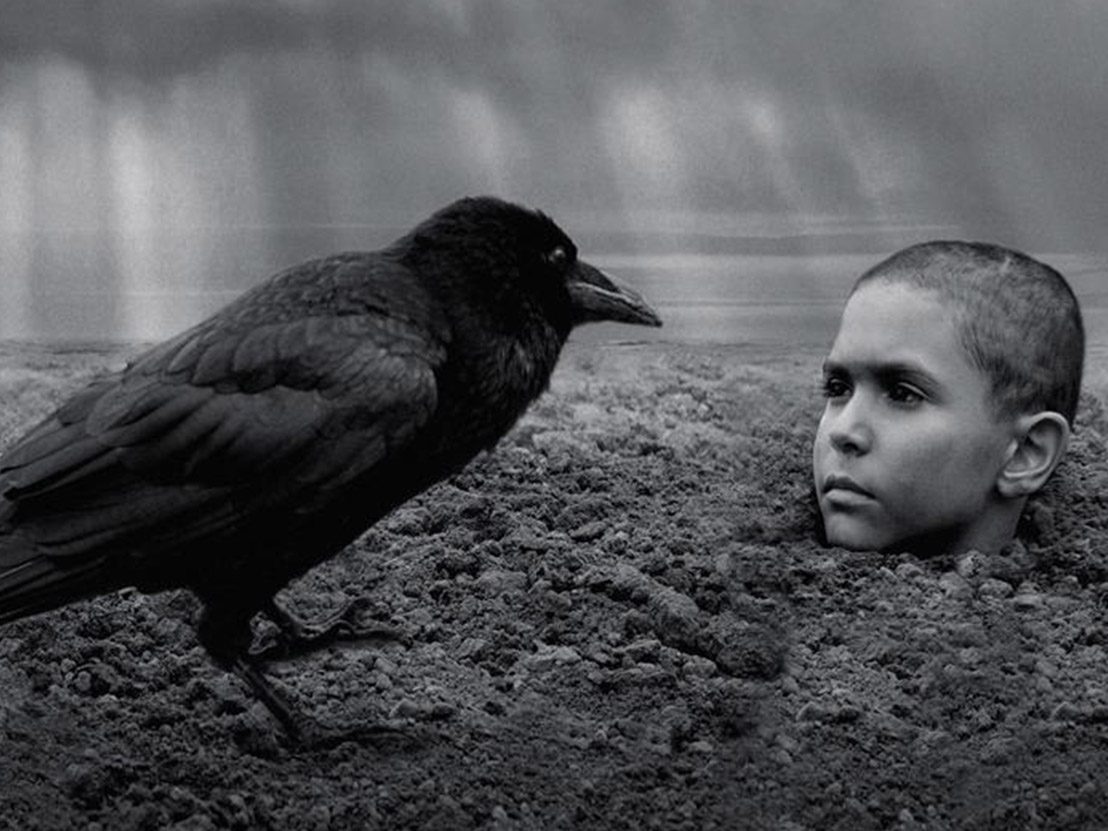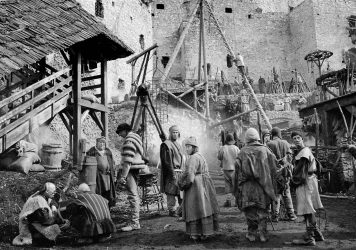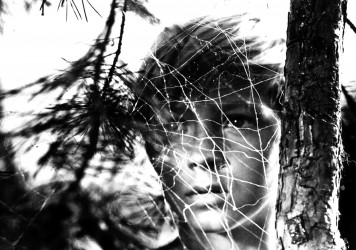
Mass walk-outs greeted this gruelling but brilliant literary epic about a young lad’s journey through hell.
This punishing but undoubtedly brilliant monochrome epic opens on a travelling shot of a small boy, running as fast as his legs will carry him, while clutching his fluffy, white pet ferret. Initially, we don’t know where he’s running to, or who he’s running from. He is barged from his flanks by another kid and the ferret is snatched off of him.
While pinned to the floor, he is able to witness his furry friend being covered in some kind of flammable liquid and then burned alive, its white fur quickly blackened by the lapping flames. It squeals in agony before flopping over to accept its tragic fate. For the unnamed boy, played with a battle-hardened poker face throughout by Petr Kotlár, this is only the beginning of a world of intense, diverse and occasionally surreal suffering. But for him, death is not an option.
It is a mesmerising travelogue film by Czech director Václav Marhoul, based on the famous 1965 novel by Jerzy Kosiński, which tells of a young Jewish boy and his horrific life in the wilds of eastern Europe during World War Two. It’s broken up into a number of episodes, each named after the person that briefly takes the child under his or her wing.
It’s a portrait of a broken continent, housing a populous untethered from basic morality and social order. Some appear to be trapped in another era altogether. The notion of extending empathy towards a pure, virtuous child is completely lost on these characters, a rogues gallery of depressives and eccentrics, paedophiles and nymphomaniacs, all of whom quickly chose to blame all their worldly torments on this doe-eyed visitor.
Marhoul paints this grotesque fresco with barely a hint of wider context and refuses to channel his anger towards systems, governments or the tides of history. He remains fully detached from the boy’s cruel destiny, just following the trail and watching on with a coldly objective gaze. Here, evil is always a personal choice – a simple human decision dictated by circumstance, but also by the double-edged sword of isolation. A lot of these monsters are simply stir crazy, trapped in their tumbledown huts and waiting for some kind of sweet release. Their seething malevolence is never driven by some higher edict, but can sometimes be understood as the result of geopolitical chaos and a world too busy with the matter of tearing itself apart.
It’s tough to amply describe the film’s relentlessly brutal pleasures, but those who have seen films like Andrei Tarkovsky’s Ivan’s Childhood, Robert Bresson’s Mouchette or Elem Klimov’s Come and See (whose star, Aleksei Kravchenko, crops up here) might have an idea of the grim terrain we’re on here. Like those great works, it’s an episodic tale of a holy innocent who drifts through life and becomes the focus of all the world’s ills.
Here, our unsmiling hero takes beating after beating, humiliation after humiliation, never laughing, never crying, never complaining, just picking himself up and seeing what the next road brings. Yet he’s not against using his natural wiles to foil some of the people who are particularly nasty towards him. By the end of the film, he has become battle-hardened and fearless – though the dark reality is, he’ll likely grow up to become one of the monsters who served to shape his dismal formative years.
Published 3 Sep 2019

By Matt Thrift
Alexsey German’s 15-years-in-the-making political allegory is a visceral, sensory, jaw-dropping masterpiece.

The startling, bleakly poetic debut feature from one of the movie pantheon greats, Andrei Tarkovsky.

We run down a clutch of the year’s finest DVD and Blu-ray purchases. Did your favourite make the cut?